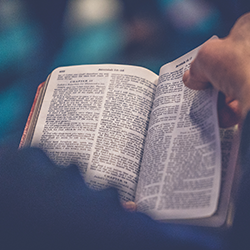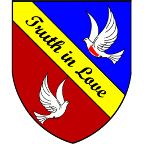Latest Posts
View the latest posts in an easy-to-read list format, with filtering options.
View the latest posts in an easy-to-read list format, with filtering options.
Multi-part posts on a particular topic, grouped together in "series" pages.
Look through our blog archive by year / month, or in a massive title list.

03/28/2024 - Micah spent much time warning Judah and Israel of impending disaster, yet in the end he also offer... Read More

03/28/2024 - Are they slowly preparing the public for something? https://www.geo.tv/latest/536900-king-charles-... Read More

03/27/2024 - The prophet Micah was a contemporary of Isaiah. Both prophesied in the years leading up to the Ass... Read More
Over 100 books covering a variety of topics
Short, single-page teachings on a topic
Single page teachings by various authors
Monthly newsletter containing ministry updates and long-term teachings
Audio recordings of teachings and discussions on a variety of biblical topics
Vlog recordings with Dr. Jones and video recordings of bible conferences.
Read over 100 books written by Dr. Jones, available to read for free online. Several of the books have also been translated into different languages, and are also available to read for free. The only time you pay is when you purchase a physical version of a book.
View Full Book ListRead a variety of tracts that condense a topic into a short, single page format. These tracts can be read for free online, or physical copies can be purchased in bundles. If you are subscribed to the FFI Newsletter, you will receive new tracts when they are released.
View Full Tract ListRead articles written by Dr. Stephen Jones and a variety of other authors.
View Full Article ListThe FFI Newsletter is a monthly newsletter written by Dr. Stephen Jones that gets posted online and mailed physically to newsletter subscribers. These include long-term teachings and ministry updates when available.
View Full FFI ListListen to audio recordings of teachings from Dr. Jones and discussions on a variety of biblical topics, available for free online.
View Full Audio ListWatch video recordings of conferences, as well as a variety of interviews and vlogs from Dr. Jones.
View Full Video ListFirst time here, and don't know where to start? No worries, we got you covered.
We have taken the five ministry gifts (Evangelists, Pastors, Teachers, Prophets, and Apostles) as an outline for the courses of Bible study in this School.
Our purpose is to equip those who are ministering with a knowledge of the Word, so that each will be more effective in fulfilling his or her calling.
Learn MoreSubscribe to the FFI Mailing list to receive a newsletter in the mail each month. You will also receive the latest Tract in the mail, if one was written that month.
There is a lot of content on this site, and that can be overwhelming, so we've written up a guide to help get you started!
Start HereIf you want to receive updates from us, signup below.
We are only able to do what we do because of your support. If you feel led to support this ministry, we deeply appreciate it
